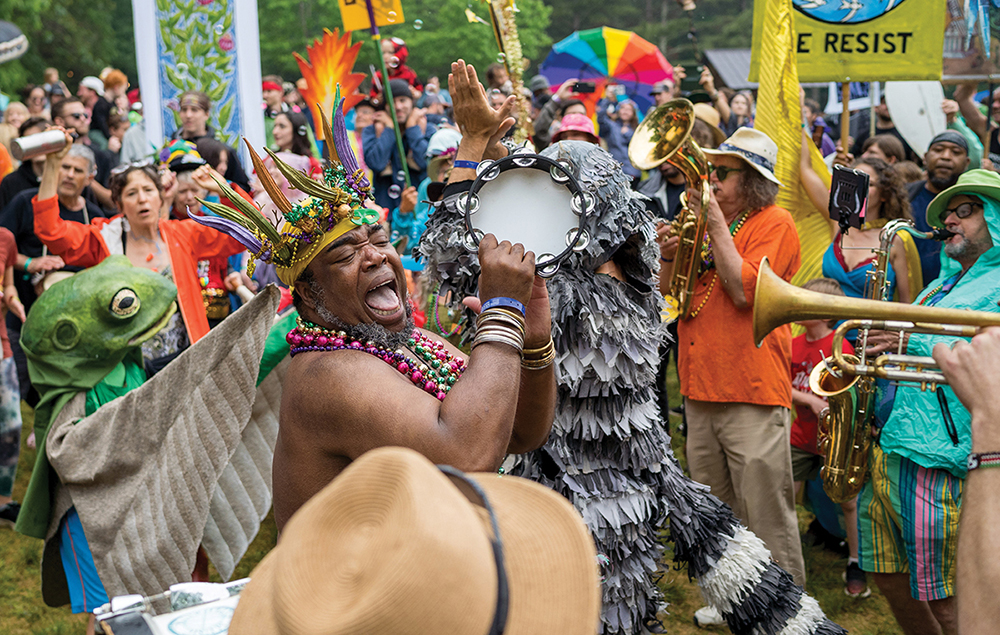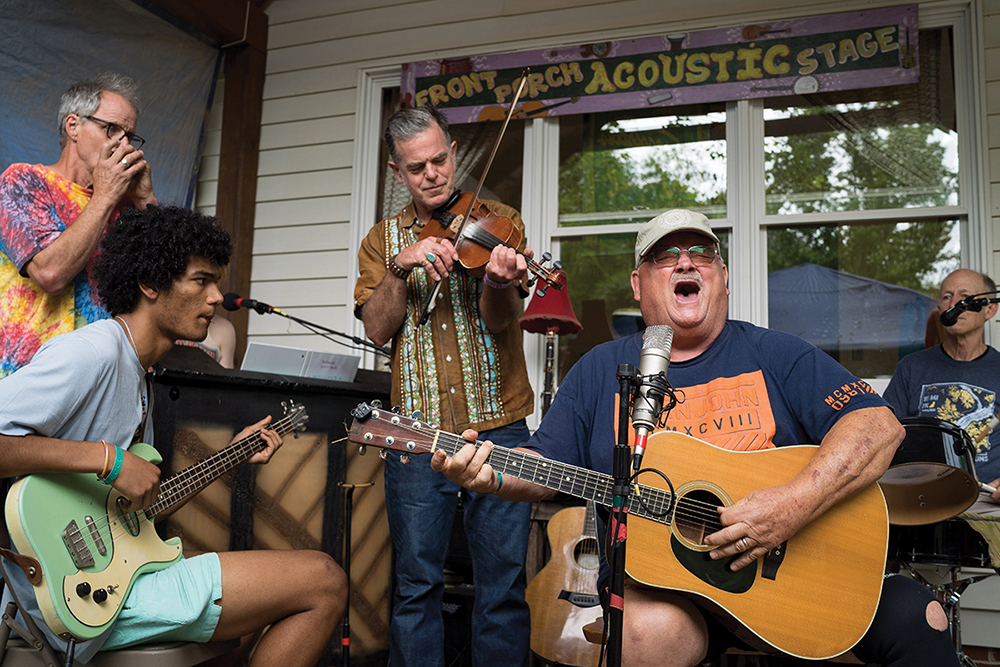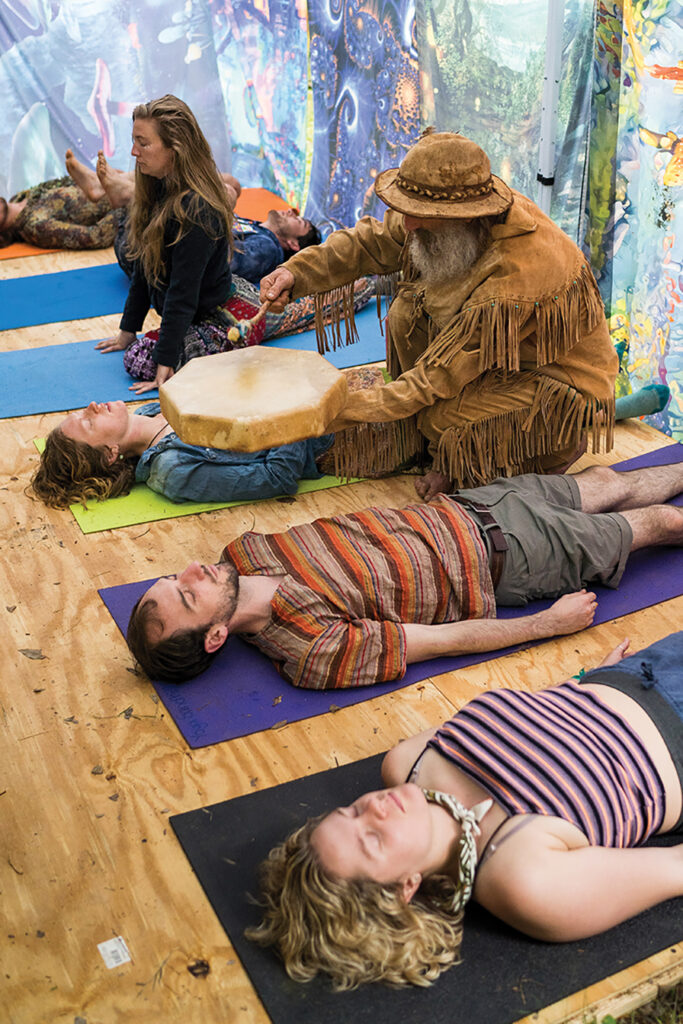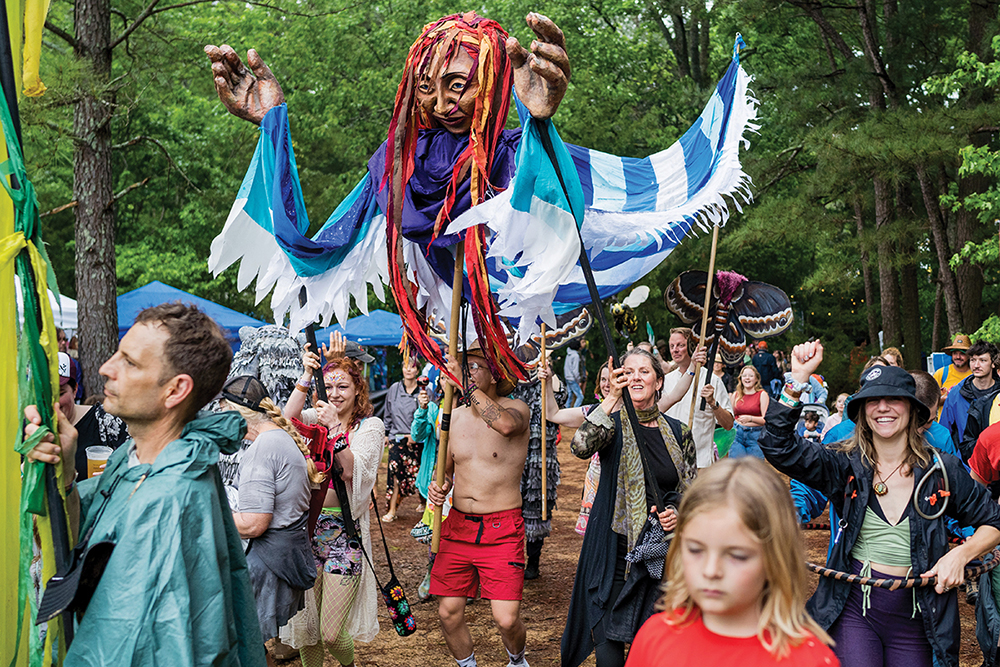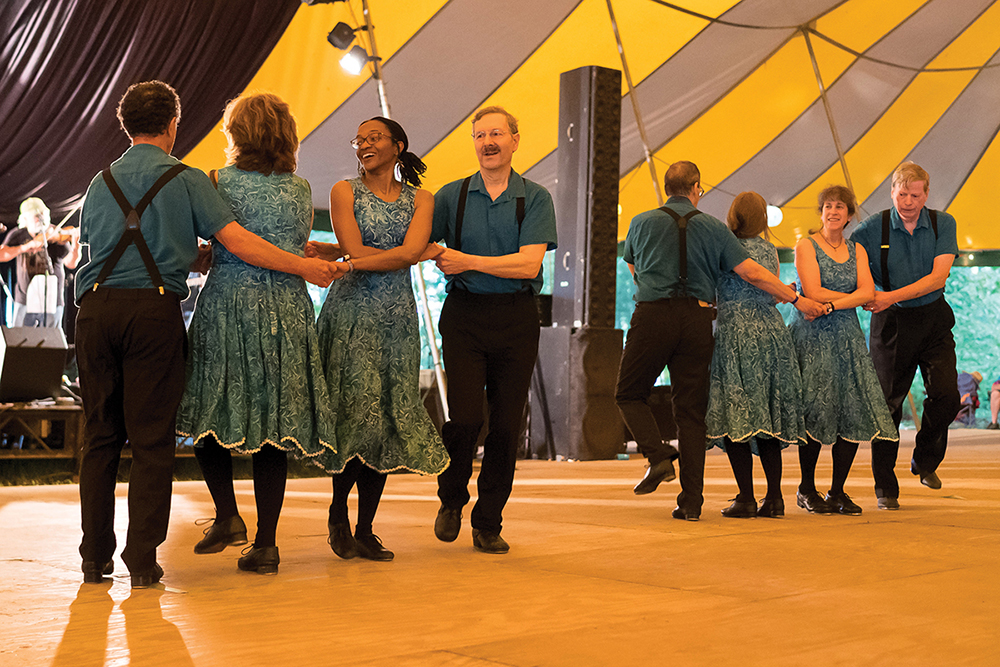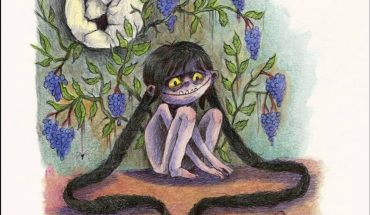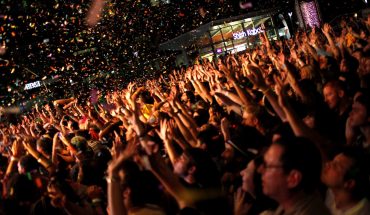This weekend showcase of inclusive, family-friendly music and dance in Pittsboro got its start with Donna the Buffalo in the 1990s.
by Ayn-Monique Klahre | Photography by Justin Kase Conder and Tim Sayer
It’s kind of like Woodstock, if things had gone a little more as planned. Just on the subversive side of wholesome, the Shakori Hills Grassroots Festival of Music and Dance is an inclusive, wellness-centered biannual music festival. And it happens about an hour away from Raleigh, twice a year, rain or shine.
The festival originated in New York’s Finger Lakes in 1990 as an event started by roots band Donna the Buffalo. Big fans of Americana music and regulars on the festival circuit, the band created its own twist on an old-time music festival to raise money and awareness around the AIDS crisis.
Over the next 10 years, the scope “grew and grew,” says Russ Friedell, the festival’s talent buyer and marketing director. “They wanted to take this beautiful thing and replicate the vibe in other places.”
The band had been through North Carolina on tour, and in the early 2000s they bought the roughly 80 acre plot that now houses the Shakori Hills Community Center with the idea of expanding the festival. Since May and October typically offer nice weather here, that’s when they decided to host the event, and this will be its 19th year.
“At the time, there weren’t so many music festivals, and even fewer that were dedicated to celebrating old time American culture,” Friedell says. “The emphasis was on music that’s passed down, on oral histories, on a catalyst culture for sharing traditions.”
But more than just American folk music, the goal was “to break down cultural walls through the sharing of all kinds of roots music,” Friedell says, including welcoming bands from the Caribbean, Africa, Europe or different regions within the United States. “It’s just about music that’s authentic to whatever it is —everything from rock to zydeco, honky-tonk to Cajun.”
This year, the headliners across the festival’s four stages include legendary country star Marty Stuart & His Fabulous Superlatives, bluegrass musician Sierra Hull, and Cuban Afro-punk band Cimafunk. But the lineup is really filled with talent from around North Carolina like Black Mountain singer Kyle Travers, Durham’s Larry & Joe and the Sam Fribush Organ Trio out of Greensboro. And Donna the Buffalo still performs every year, to the enjoyment of their loyal followers (nicknamed “the herd”).
“The idea is that when we create this mix, this dialogue and magic ensues that happens on its own, it’s not being forced on you,” says Friedell. “The emphasis is on turning the spotlight toward each other. You might know one band on the lineup but discover five others.”
Emily Wilhelm started working at Shakori Hills as a teenager and is now its festival director. “A lot of times it’s a labor of love — I’ve pounded rebar, cooked for the crew,” she laughs. “We have these amazing relationships with people in the community because of how it’s grown over time.”
Up to 7,000 people come every year, many of whom camp for the weekend, and many head in for the day. The campsites turn into little villages unto themselves: some will host drum circles well into the night, while others get quiet early so kids can sleep.
In 2016, the festival went on through Hurricane Matthew. “It rained for 32 hours straight, but for the people who showed up in their rain boots and jackets, they experienced something really special,” says Wilhelm.
“Béla Fleck and his wife performed under the tents for our small group of people.” Wilhelm credits the venues grant for getting them through the pandemic, and says that since they resumed in 2021, the festival has been getting bigger and bigger.
“It’s about so much more than the music, though,” says Jim Graves, a board member with the Shakori Hills Community Arts Center, who’s been involved with the festival for more than 15 years. The nonprofit works to create programming for all ages and interests.
There’s a huge dance tent and a front porch stage outside of the community center’s main office building, where anyone can come up and jam. The festival includes a kids village (“a safe space for kids to create”) and a teen outpost for more advanced activities like tie dye or dominoes.
There’s a healing arts village with opportunities to experience reiki or work with a licensed massage therapist. There’s an advocacy area, which hosts nonprofits from Planned Parenthood to local preservation organizations to showcase their work; a number of craft vendors (“things that are truly handcrafted, nothing that’s bought and brought,” says Wilhelm); and a sustainability pavilion with information about composting, solar power and everything in between.
Sustainability is a major tenet of this festival. The grounds are kept meticulously clean, and Wilhelm’s team sorts through the trash to make sure everything that is recyclable or compostable is reclaimed. The musicians are fed with food sourced from local farmers, and the dinnerware is compostable, too. Guests fill their water bottles from deep wells on the grounds.
There’s also the Happiness Parade, a march anchored by the Paperhand Puppet Intervention and a big brass band. “It’s a Mardi Gras type-experience, we’re just marching around, making noise and singing songs together; it evokes so much joy,” says Wilhelm.
That feeling permeates the festival. One of Friedell’s favorite things is seeing long-time guests year after year. “You’ll see people who were just falling in love 30 or 40 years ago, now coming with their grandkids,” says Friedell. “It’s completely unlike any other festival I’ve been to, there really is that community, family vibe.”
Wilhelm also loves the longtime fans. “There are so many beautiful moments; I love to witness the joy of campers who only get to see each other twice a year reuniting,” she says. “Yes, the ‘festie besties’ — they’re my favorite,” laughs Graves, who notes that people often camp in the same spots every year, forming mini-communities within the festival.
“The connection that happens here — it’s almost like a different reality where the happiness comes from a different place,” says Wilhelm. And that, says Friedell, is what makes Shakori so different. “You can watch life happen through this festival — people have lost and found themselves over and over again. It’s so powerful.”
This article originally appeared in the May 2023 issue of WALTER magazine.

